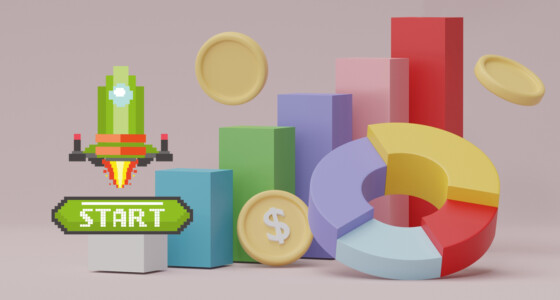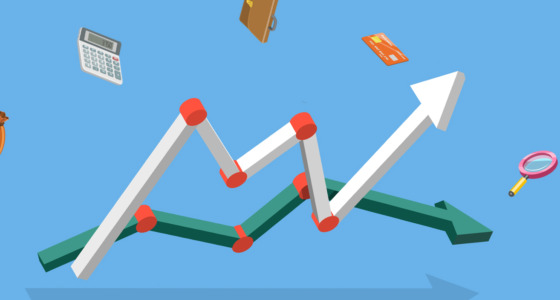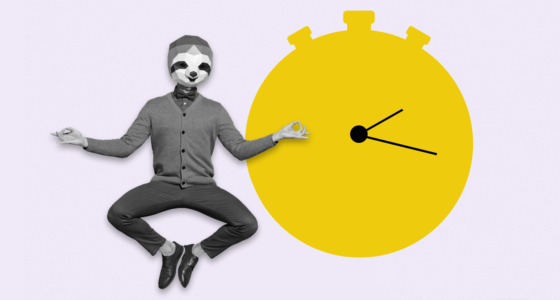

The topic of trading emotions and psychology is as important as technical analysis or strategies. In fact, emotions make traders lose funds as much as bad strategies do. Panic selling is often so impactful that it makes it to financial history books: for example, the infamous Black Monday that marked the start of a global stock market decline.
That said, emotions aren’t the enemy—it’s the lack of control.
This article will explain the “stinking thinking” cycle of trading emotions and show you the range of emotions that you’ll definitely feel— the good, the bad, and the boring. t
1. Fear
Fear is probably the one emotion everyone in the trading world talks about. This is likely because it’s one of the most common causes of trading mistakes. It manifests itself in a number of ways—fear of the unknown, fear of being wrong, fear of missing out, fear of losses, fear of giving back returns, and more.
FOMO is also an emotion that gets a lot of attention and makes traders quickly pounce on opportunities before they get away, many times unsuccessfully.
2. Excitement
When things in the markets start to move your way, you might feel giddy. This is where you get excited and start anticipating that you’re about to become a success story in the trading world.
The pleasure of imagined future gains creates feelings of excitement. It makes you fully confident with the trading system that you have. On the whole, it’s a good thing, but make sure you’re not starting to feel too self-assured.
3. Frustration
You can feel frustrated when you miss trading opportunities, take too much risk, or realize that you could’ve done something better. It can reinforce negative thought patterns and intensify the problem, leading you towards decisions you’ll regret. To make it as a trader, you’ll need to learn how to shake this feeling off.
Consider channeling your frustration into productive action. For example, if you’ve made a mistake because you didn’t know better, use your frustration as motivation to learn more about this market.

4. Elation
Successful trades create a feeling of elation. Long-term traders may not feel it as often as shorter-term players, so it’s fair to say that elation is considered one of the common intraday trading emotions.
This emotion helps you choose which factors are relevant to your trading system. For example, if you feel happy about a SMA crossover successful trade, you’ll likely continue using SMAs over another strategy.
5. Boredom
It’s more a state of mind than an emotion, but boredom also belongs on this list. After the initial excitement of taking a favorable trade wears off, trading becomes a waiting process (except for scalers, of course). You’ll have to accept the fact that trading is not all about the thrills, and it can turn into a routine process.
The downside of boredom is that it can make you lose focus. And when you’re browsing the Internet instead of paying attention to your signals, you can miss trade entries.
5 tips on how to control trading emotions
If you have problems controlling your emotions, consider these practices:
- Give your thoughts and feelings a name. The next time you’re experiencing a strong emotion, label it. Saying “I’m angry” or “I’m frustrated” might feel foolish at first, but you’re training yourself to pay attention to what you feel.
- Don’t get attached to positions. The “hopes” that a position will turn around will not get you far. Don’t be stubborn; close a bad trade when your strategy says so.
- Stop trading after a series of successes or losses. When a certain event happens several times in a row, you’ll most likely get affected by it. Successes can make you feel invincible. Losses can make you feel inadequate. In both cases, you will evade problems by just taking a break.
- Respect your stops. Don’t move your stop-loss orders mid-trade. If you’ve set them to a certain level and the price is going in that direction, so be it.
- Block market noises. Not all noises are inconsequential, but it’s important to limit the amount of information coming your way. It can be especially overwhelming during strong bull or bear runs.
As long as your emotions don’t get the better of you, they are not the enemy of reason. The emotions you feel during each trading session will compel you to take action and influence your decisions, both large and small. Instead of fighting them, learn to benefit from them!









